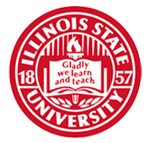Abstract
Communication between clinicians, teachers, and family members is a critical skill when addressing and providing for the individual needs of patients. However, graduate students in speech-language pathology (SLP) programs often have limited opportunities to practice these skills prior to or during externship placements. The purpose of this study was to explore the use of virtual-reality based rehearsal with coaching on the interpersonal collaborative communication skills of SLP graduate students when delivering information regarding a singular patient to different stakeholders. Three graduate students completing their third semester in a SLP program participated in the study. Each participant was provided a clinical case scenario and asked to deliver recommendations related to the client’s communication abilities to a single adult avatar portraying either a parent, teacher, or pediatrician. This task was repeated twice to allow assessment of performance across multiple trials. A brief reflection and coaching period was provided between trials with the same avatar. All interactions were scored using the Situation, Background, Assessment, Recommendation, and Communication (SBAR-C) tool. All participants demonstrated improved communication skills between their first and second trial with each avatar as measured by the SBAR-C. Social validity surveys with participants revealed that they found the intervention to be valid and acceptable.
Recommended Citation
Towson, J. A., Taylor, M. S., Tucker, J., Paul, C., Pabian, P., & Zraick, R. I. (2018). Impact of Virtual Simulation and Coaching on the Interpersonal Collaborative Communication Skills of Speech-Language Pathology Students: A Pilot Study. Teaching and Learning in Communication Sciences & Disorders, 2(2).
Included in
Interprofessional Education Commons, Scholarship of Teaching and Learning Commons, Speech Pathology and Audiology Commons




